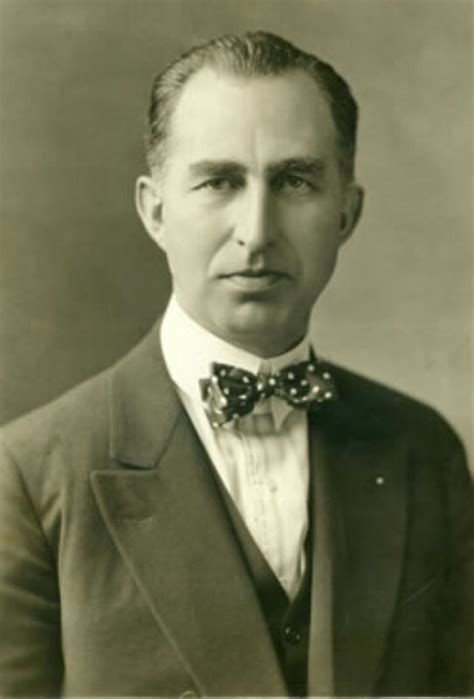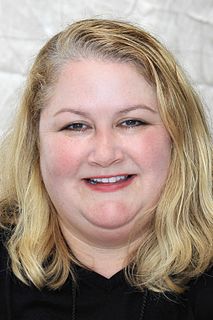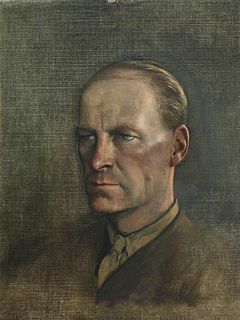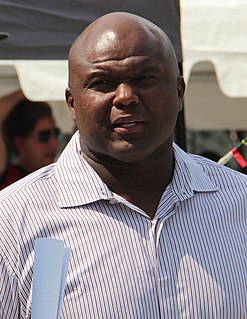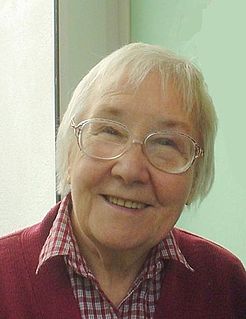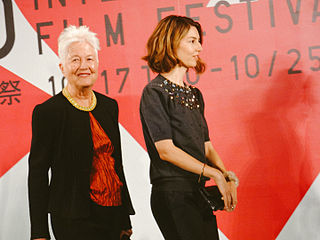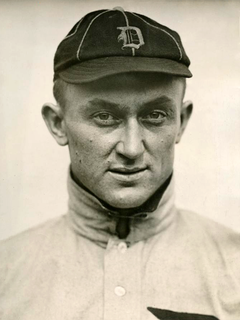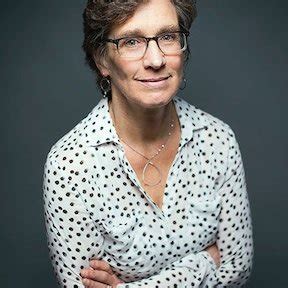Top 204 Clues Quotes & Sayings - Page 4
Explore popular Clues quotes.
Last updated on April 15, 2025.
...Generally people don't recomend this type of book at all. It is far too interesting. Perhaps you have had other books recomended to you. Perhaps, even, you have been given books by friends, parents, teachers, then told that these books are the type you have to read. Those books are invariably described as "important"- which in my experience, pretty much means that they're boring. (words like meaningful and thoughtful are other good clues.)
A couple of clues came my way of what I might be getting myself into when I sat down with a number of actors who had played Richard III in the past. And I was hoping of course, that one of them or all of them were gonna give me the magic key, the secret way in to play Richard III but none of them did that.But every one of them did say the following, "Be careful."
Though tax records are generally looked upon as a nuisance, the day may come when historians will realize that tax records tell the real story behind civilized life. How people were taxed, who was taxed, and what was taxed tell more about a society than anything else. Tax habits could be to civilization what sex habits are to personality. They are basic clues to the way a society behaves.
When I watch the show [Westworld], it leaves me looking at the world around me in a new way. It really stays with you. And it's one of those things that you have to figure out. You're going to get little clues along the way, and every time you think you know what's up, we're going to flip it around. It's going to take you for a really awesome, crazy ride, but it's a really, really revolutionary character for women. There's a lot of really fun stuff to look forward to.
Do you want to guess what's in here?" I asked Dash. "I think I've got it figured out already. There's a new supply of red notebooks in there, and you want us to fill them in with clues about the works of, say, Nicholas Sparks." "Who?" I asked. Please, no more broody poets. I couldn't keep up. "You don't know who Nicholas Sparks is?" Dash asked. I shook my head. "Please don't ever find out," he said.
Maybe it's all utterly meaningless. Maybe it's all unutterably meaningful. If you want to know which, pay attention to what it means to be truly human in a world that half the time we're in love with and half the time scares the hell out of us. Any fiction that helps us pay attention to that is religious fiction. The unexpected sound of your name on somebody's lips. The good dream. The strange coincidence. The moment that brings tears to your eyes. The person who brings life to your life. Even the smallest events hold the greatest clues.
The fact that we all leave behind seemingly insignificant clues behind ourselves - emotional DNA or what I call Small Data - which are able to describe with an insane accuracy who we really are, our personalities and desires. But even more how we all represents out of balances - perhaps I feel too overweight, feel alone or feel I haven't achieved what I'd hoped for when hitting 40. These imbalances are surprisingly visible when visiting consumers' homes - and surprisingly invisible when relaying on Big Data.
Healthy areas that are richest in information are those areas in the wild where we can get all the information that's available to us within our human hearing range. The most valuable information throughout human evolution has been faint sounds. We tend to think in our modern world that if it's loud, if it grabs our attention, it's important. We get a lot of that in advertising. But in nature, it's the faintest sound that's important; it has determined, in the past of our ancestors, perhaps, if they will live or die. Faint sounds are the earliest clues of newly arriving information.
There is a close relationship between a house full of possessions and a heart full of desires, between a cluttered closet and a crowded schedule, between having no place to put possessions and having no priorities for our life. These are precious clues. They remind us to slow down, to live in the present, to reduce the desires that drain our vitality, to clarify priorities so we can give our time and attention to what matters most. Tragically, in the press of modern life, we have managed to get backwards one of life's most vital truths: people are to be loved; things are to be used.
She had always told herself that she did hti job because she wanted to help others; afterall, hadn't Maurice told her once that the most important question any individual could ask was, "How might I serve?" If her response to that question had been pure, surely she would have coninued with the calling to be a nurse.... But that role hadn't been quite enough for her. She would have missed the excitement, the thrill when she embarked on the work of collecting clues to support a case.
Overt intelligent performances are not clues to the workings of minds; they are those workings. Boswell described Johnson's mind when he described how he wrote, talked, ate, fidgeted and fumed. His description was, of course, incomplete, since there were notoriously some thoughts which Johnson kept carefully to himself and there must have been many dreams, daydreams and silent babblings which only Johnson could have recorded and only a James Joyce would wish him to have recorded.
I don't like the strictly objective viewpoint [in which all of the characters' actions are described in the third person, but we never hear what any of them are thinking.] Which is much more of a cinematic technique. Something written in third person objective is what the camera sees. Because unless you're doing a voiceover, which is tremendously clumsy, you can't hear the ideas of characters. For that, we depend on subtle clues that the directors put in and that the actors supply. I can actually write, "'Yes you can trust me,' he lied." [But it's better to get inside the characters' heads.]
I began to research the concept of dimensionality from the point of view of quality, and not just quantity, as a mathematician might do. Taking my clues from the theosophical use made of the Vedantic levels of reality, I identified the western notion of Energy (as someting which is effecatious by means of motion), with the idea of Time. The more comprehensive dimension 'eternity' I defined as a form of energy which is efficacious without motion. In this manner I began to establish the qualities of dimensions and open out the seemingly monolithic concept of energy.
Once in a while, Jimmy would make up a word but he never once got caught out. ... He should have been pleased by his success with these verbal fabrications, but instead he was depressed by it. The memos telling him he'd done a good job meant nothing to him; all they proved was that no one was capable of appreciating how clever he had been. He came to understand why serial killers sent helpful clues to the police.
It's just as hard for man to break the habit of thinking of himself as central to the species as it was to break the habit of thinking of himself as central to the universe. He sees himself quite unconsciously as the main line of evolution, with a female satellite revolving around him as the moon revolves around the earth. This not only causes him to overlook valuable clues to our ancestry, but sometimes leads him into making statements that are arrant and demonstrable nonsense.
I was thinking about time, how on a movie set the shot is maintained in the same time no matter how many takes and hours pass. Reflectors and lights are added, footprints are smoothed away, so that there are no telltale clues as the day wears on. When the shot is finished and the plugs are pulled, time seems to leap forward in a matter of seconds. Perhaps making movies is a step toward being able to move backward and forward and in and out of linear time.
When you're not doing fiction, there's a limit to how much illustrating you can do with your work. I mean, you can do fine. There are great non-fiction writers, but people aren't necessarily going to say anything that reveals them as much as a picture might. Even their surroundings, in lot of cases, the things that meant the most to me were the things I noticed in their houses. I was always looking, as much as I was listening to them. I was looking around for clues as to why I was there.
I spend quite a bit of time thinking about my students. I look at them, at their work, I listen to what they tell me, and try to figure out who they might become in the best of all possible worlds. This is not easy. Students try to give you clues; sometimes they look at you as if imploring you to understand something about them that they don't yet have the means to articulate. How can one succeed at this? And how can one do it 20 times over for all the students in a class? It's impossible, of course. I know this, but I try anyway. It's tiring.
The longer I live, the longer I realize that batting is more a mental matter than it is physical. The ability to grasp the bat, swing at the proper time, take a proper stance; all these are elemental. Batting is rather a study in psychology, a sizing up of a pitcher and catcher and observing little details that are of immense importance. It's like the study of crime, the work of a detective as he picks up clues.
She touched the edge of its voluptuous field, knowing it would be lovely beyond dreams simply to submit to it; that not gravity's pull, laws of ballistics, feral ravening, promised more delight. She tested it, shivering: I am meant to remember. Each clue that comes is supposed to have its own clarity, its fine chances for permanence. But then she wondered if the gemlike "clues" were only some kind of compensation. To make up for her having lost the direct, epileptic Word, the cry that might abolish the night.
If there is a god, he is not only a wizard at leaving clues behind. More than anything, he's a master of concealment. And the world is not something that gives itself away. The heavens still keep their secrets. There is little gossip amongst the stars. But no one has forgotten the Big Bang yet. Since then, silence has reigned supreme, and every thing there is moving away. One can still come across a moon. Or a comet. Just don't expect friendly greetings. No visiting cards are printed in space.
My photographs don't go below the surface. They don't go below anything. They're readings of the surface. I have great faith in surfaces. A good one is full of clues. But whenever I become absorbed in the beauty of a face, in the excellence of a single feature, I feel I've lost what's really there been seduced by someone else's standard of beauty or by the sitter's own idea of the best in him. That's not usually the best. So each sitting becomes a contest.
About writing I learned that always, always, always it's necessary to haunt your settings. I'm a big researcher. All my fiction is based on tons of digging. But the vital importance of actually traveling to the settings of a novel really hit me. And it's not just the setting details, not just the visuals and other sensory data, that will pop. You'll find surprising clues that swerve your story in whole new, deeper, surprising, more organic ways.


